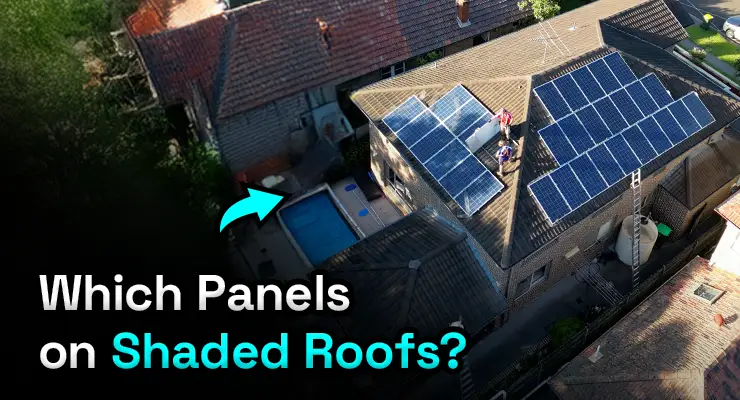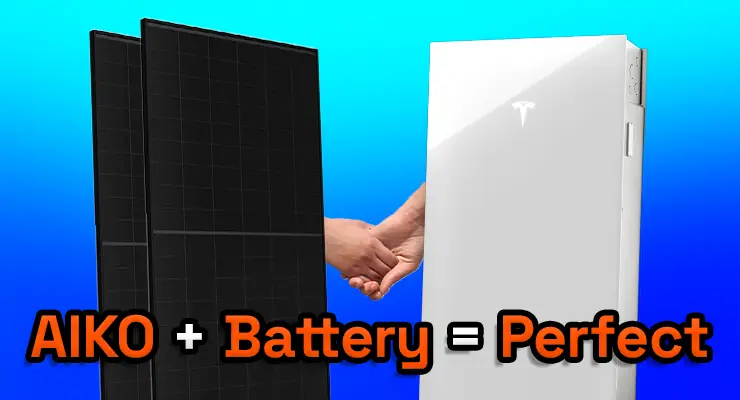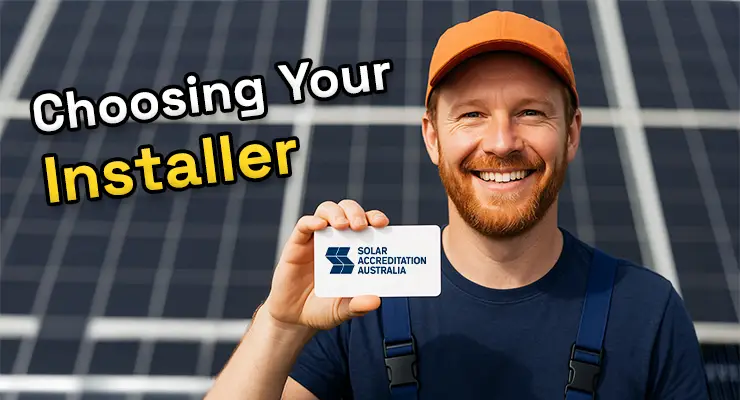
Fast read
Grid-tied, hybrid, and off-grid systems are the three primary types of solar energy systems available for residential usage.
The most typical systems are grid-tied ones. These are linked to the power grid and enable homeowners to use renewable energy sources while still having access to the grid for backup power. Less common hybrid systems have a backup battery and can draw power from the grid and the battery.
Off-grid systems employ a sizable battery bank to store extra solar energy for usage at night. But, again, this is because they are not connected to the grid.
These systems provide total energy independence but are more expensive, call for larger solar systems, and require more battery storage. Therefore, when choosing the kind of solar system to install, it's crucial to consider the home's needs and finances.
What are the different types of solar systems?
For individuals new to the renewable energy sector and contemplating the installation of a solar system, it’s essential to understand that there is not just a singular option. In your research, you’ll discover three distinct types of solar systems available for residential purchase:
- Grid-Tied Residential and Commercial Solar Systems (90% Adoption): The most prevalent option among solar system owners, these systems are connected to the grid. Users can use solar energy and stay connected to the power grid. This gives them flexibility and the ability to send extra energy back to the grid.
- Grid-Tied with Backup Battery Solar Systems (Hybrid – 10% Adoption): A hybrid solution that combines the advantages of grid-tied systems with the resilience of backup batteries. This type appeals to around 10% of solar system owners, offering the ability to store excess energy for use during power outages or periods of low sunlight.
- Off-Grid Solar Systems (Self-Sufficient): For those who choose to completely disconnect from the grid, off-grid solar systems are the option of choice. These systems operate independently using solar power and energy storage. They are suitable for remote locations or areas with unreliable electricity.
Grid-tied solar
The most common and conventional solar panel system that many Australians purchase is a grid-tied solar system. This is also the cheapest of the three options. If you purchase this solar system, you will be completely connected to the grid.
The grid is what we call the conventional electricity infrastructure. This system allows homeowners to enjoy the benefits of renewable energy with the security of the electricity grid to back them up in case there is a blackout or their system doesn’t completely cover their energy consumption (which is common).
By staying connected to the grid, homeowners can rule out the disadvantages, higher costs, and risk of going solar on their own because solar production fluctuates throughout the day because of several variables. When your system is producing less than expected or consuming more than the solar system produces, the grid will be able to support your needs.
Furthermore, suppose you are producing excess electricity from your system. In that case, some companies will allow you to feed that back into the grid as a Feed-in tariff (FiT) to receive a credit on their electricity bill. Although the amount paid per kWh is much less today than in the past.

Hybrid solar
The second most popular solar system installed today is a hybrid solar system. This is a standard residential grid-tie solar system with a backup battery. Such a solar system is considered the most flexible option as it allows homeowners to draw electricity from the grid and their batteries.
This type of solar system is only recommended for homes with higher energy consumption or owners of EV vehicles. Solar storage batteries are still relatively expensive. We have specific FAQs available about battery ROI.
Suppose you aren’t sure which option best suits you. Make sure you contact your local Your Energy Authorised solar installer so that they can assess your home. They will give you advice on what type of solar system options they recommend.
Off-grid solar
The final type of solar system that is available to the public, however, is not as common as the other two is the off-grid solar system.
Off-grid solar systems are not connected to the grid and use a large battery storage bank to collect the excess solar produced during the day so that energy can be used at night. They are usually installed when the cost of running the grid to the typically remote property will be more than the cost of an off-grid PV system.
These systems allow homeowners to have complete energy independence. However, they are much more expensive and have some limitations compared to grid-tied systems. Nevertheless, such a system can easily be 3 to 4 times the cost of a standard residential solar system.
One of the main limitations is that they require a larger solar system and decent battery storage. They must ensure they have sufficient energy for the entire house, even during extended periods of rain and cloudy weather.
The design of the system will need to take into account these eventualities. Otherwise, the homeowner is left in the dark. Before the boom in residential solar starting in 2006, off-grid solar was the backbone of the much smaller solar industry.
Which system suits you best?
For those new to renewable energy, navigating the solar system options is essential. There are three main options for buying a home solar system. These options include grid-tied, hybrid, and off-grid systems.
Grid-tied systems are connected to the grid. Hybrid systems are grid-tied but also have backup batteries. Off-grid systems operate independently.
Grid-tied systems are the most common, offering stability and potential bill credits. Hybrid systems provide flexibility with backup batteries, while off-grid options promise complete energy independence. The choice depends on energy needs, location, and budget, with each type suiting different preferences and situations.


